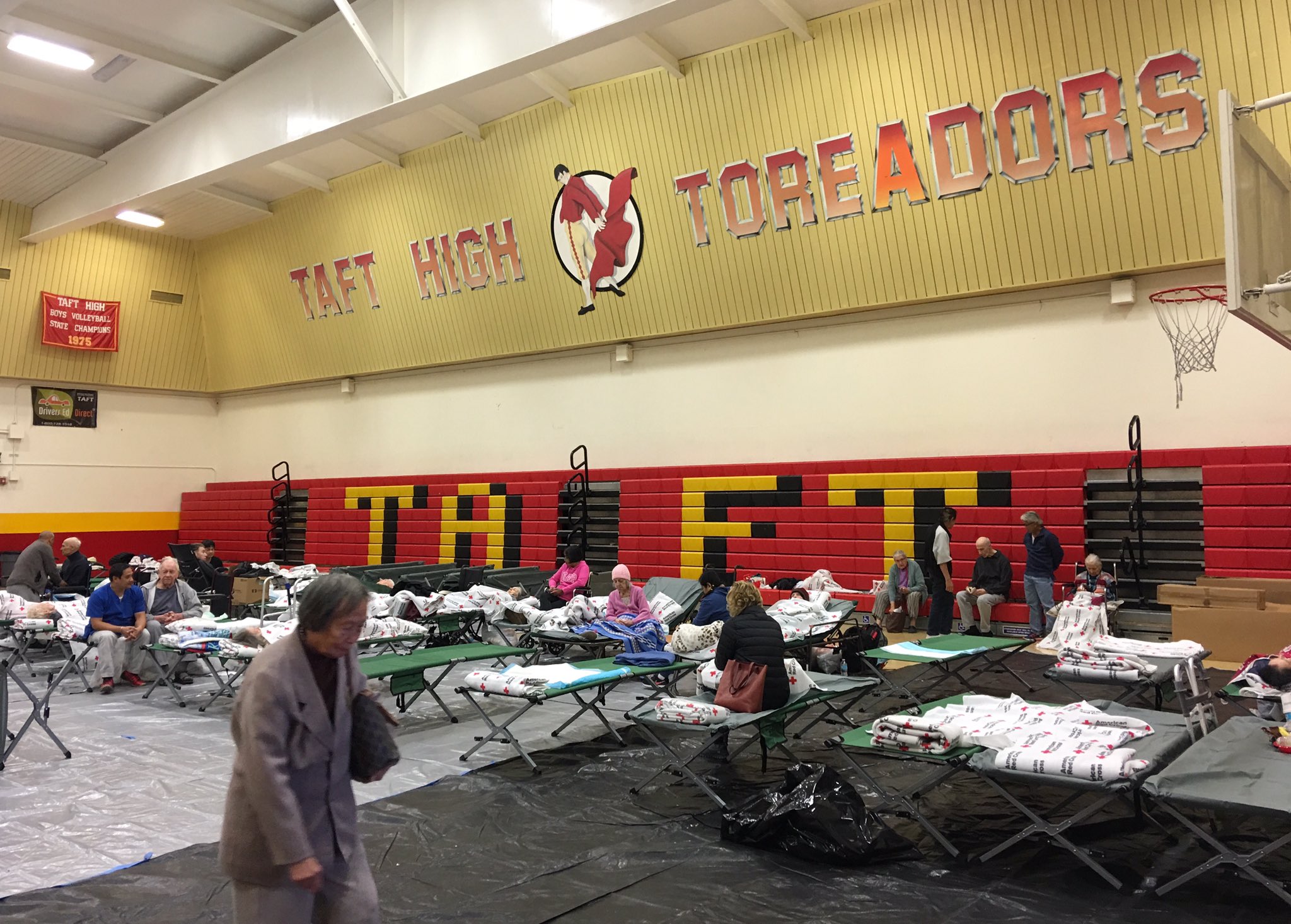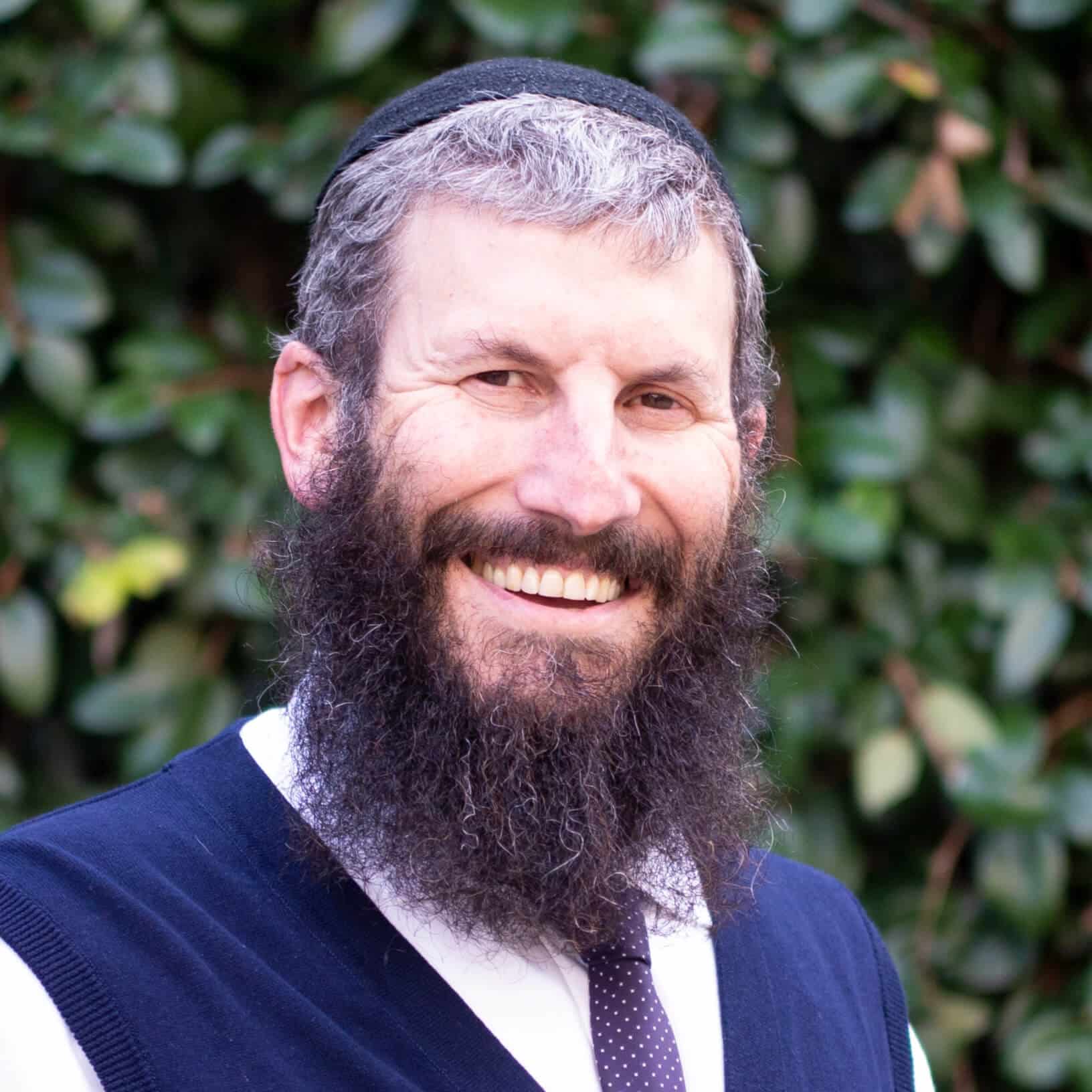 The gymnasium at Taft High School in Woodland Hills served as a shelter for Woolsey Fire evacuees Friday, Nov. 9, 2018. (Photo by Kevin Modesti.Los Angeles Daily News)
The gymnasium at Taft High School in Woodland Hills served as a shelter for Woolsey Fire evacuees Friday, Nov. 9, 2018. (Photo by Kevin Modesti.Los Angeles Daily News) Reflections After Visiting Californian’s Impacted by the Fire
You might not have heard of Hope, California. It’s not a real place on the map, but a place in the mind.
As I entered the town hall meeting in Thousand Oaks, while the Woolsey fire was still burning, I was given a pin and orange ribbon in memory of those murdered the previous week at the bar. I’m not sure if it was the organizer’s intent, but the message for me was, “as bad as the fires are, at least we aren’t dead.” Thank God.
The auditorium’s spacious lobby was filled with help desks with agencies distributing information, signing up people for various assistance programs, offering coffee and cookies and smiles to everyone.
In kind, distinctly administrative voices, Thousand Oaks civilian employees delivered information to those impacted by the Woolsey Fire.
There is no easy solution. Even if you are lucky that your house survived the fires, the ash that may be coating your property or the soot which seeped inside is contaminated and dangerous, especially for children. When houses burn, the ash is full of the chemicals, heavy metals, asbestos, and other material that were part of the house. The health director warned people to take great precautions if they were going to do their own clean-up and not wait for professional.
While one of the causes of the devastation was the severe drought, upcoming rainfall — this year has an eighty percent chance of being a year with above average precipitation— brings new problems. Homeowners were encouraged to get sandbags and create flow zones around their homes. When the rain comes it will bring tons of debris down the hillside that will overwhelm flood and water controls systems. The hills will take at least three years to recover.
Delivering supplies, making a difference, much more to do
I delivered the bags of supplies and bottled water we collected at Pico Shul into a large Uhaul box-truck at the Conejo Valley Center for Jewish Life. It was nearly full, and the rabbi informed me it was the third truck they have filled. They set up this collection site to make it easier for people to donate to those living in emergency shelters. A group of Jewish teens had just returned from a visit to a fire station, where they delivered thanks, gifts and cheer to the weary firefighters.
When I left the city to visit and deliver aid, I hadn’t known about the Town Hall. But on the way, speaking with a couple I am close with that recently moved out of the city to Oak Park, I heard about the meeting. I came to the Thousand Oaks Town Hall at the end of a small tour of some of the areas devastated by the fires.
Paradise Lost
I have not yet been back to Paradise, California, a town that we have visited during our trips to the High Sierras.
There is no modern comparison in American history to a small city burning down. There are no emergency shelters being distributed like in developing countries when tragedy strikes. Rather, to those not fortunate enough to find a spot in a shelter, there are tens of thousands of our fellow humans, Americans, Californians, without housing, some now living in tents in a Wal-mart parking lot in Chico, whose homes were incinerated by the Camp Fire.
This new homeless population adds to the hundreds of thousands of homeless people that live in California.
Hope, California
So you might ask, “Rabbi, where is the HOPE you were talking about??”
One of the most striking and impressive features of each conversation and interaction was how willing people were to help. If we could only figure out how to bottle that willingness to help others, without wondering what about the other’s religious or political affiliations, when there isn’t a devastating tragedy like the fire.
The common humanity and the mountains of goodness that is unleashed by these massive tragedies evaporate so quickly. Then we retreat back to small islands of fear, selfishness, and partisanship.
We don’t need to.
Each of us is created B’tzelem Elokim, in the image of God.
And we are children of Abraham and Sarah, who were giants of Chesed.
If we can remind ourselves of our heritage and capacity for loving our fellow, and remind ourselves that God, Hashem, is in charge of the world, then we will spend more time in Hope.























 More news and opinions than at a Shabbat dinner, right in your inbox.
More news and opinions than at a Shabbat dinner, right in your inbox.